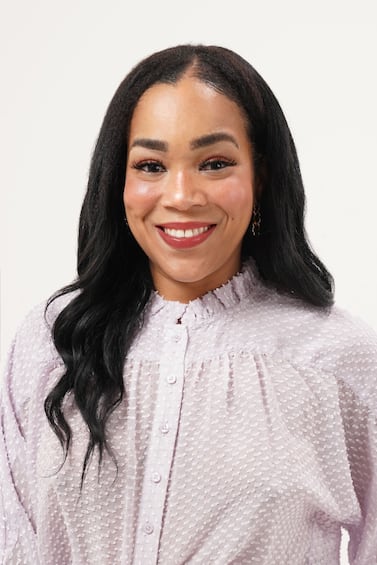
The Business of Fashion
Agenda-setting intelligence, analysis and advice for the global fashion community.

Agenda-setting intelligence, analysis and advice for the global fashion community.

Winnie Park isn’t falling off anyone’s glass cliff.
On paper, some might say the Forever 21 chief is a textbook example of the concept. Park is a woman of colour with a resumé that includes leadership roles at some of the industry’s top brands (Levi’s and LVMH-owned DFS among them) put in charge of a retailer with significant problems. That’s not how she sees her current role, though.
“I truly don’t believe in a glass cliff,” she said.
She’d be in good company if she did: the term entered the business lexicon about two decades ago, and has been applied to dozens of CEO roles that companies discovered they could fill with someone other than a white male only when crisis loomed. In fashion, the label has sometimes been stuck to Marvin Ellison, who headed struggling department store JCPenney from 2015 to 2018 (now CEO of Lowe’s, he’s still one of only six Black CEOs in the Fortune 500), and Michelle Gass, who fended off e-commerce rivals and activist investors over five tumultuous years at Kohl’s (her performance won the attention of Levi’s CEO Chip Bergh, who in November named Gass his successor).
ADVERTISEMENT
Park is adamant about reframing this narrative. She believes the perception that women and minorities are often the last resort for leadership roles at struggling companies diminishes the hard-won skills (like “grit and determination”) those leaders are forced to develop in order to climb in their careers.
“Maybe minorities and women are more likely to take those risks [to transform companies]… to raise their hands and say, ‘I will take this on,’” she said.

There’s no shortage of challenges to take on. Over the past decade, retail CEOs have been forced to repeatedly close stores and restructure corporate staff in the face of the online shopping boom. The situation isn’t much better at digital brands, where the person in the top job is a lightning rod for investors angry about slowing growth, and employees sick of the start-up grind.
Some companies truly are beyond saving. But certain executives see the glass cliff as an opportunity to embrace the risks and rewards of being a transformational leader. They’re in the right position to help an organisation rise above its current limitations in areas ranging from digital innovation to supply chain, sustainability and inclusion. Determining which roles are no-hope scenarios and which are potential career-defining roles is both the challenge and the opportunity.
“You have to figure out ‘what’s in it for me?’” said Caroline Pill, partner at executive search consultancy Heidrick & Struggles’ London office, focused on the global fashion, luxury and beauty industries. “And that can be anything from an opportunity to show the world what you can do or a juicy exit package.”
The ideal candidate to lead in a time of change must possess a unique and complex mix of hard and soft skills. Successful transformational leaders are agile and humble visionaries with an uncanny ability to “bring people along,” said Erica Grant, Partner and head of the leadership talent practice at advisory firm Lotis Blue Consulting, which specialises in business transformations. They’re charismatic, have an “extremely high emotional IQ” and are exceptionally driven and determined, Forever 21′s Park noted.
Such executives live for “the mental challenge of solving an organisation’s trickiest and most complex problems,” Grant said.
Sharon Leite, chief executive of Ideal Image — a chain of 150 spas that offer laser hair removal, body sculpting, Botox and fillers among other services — is on her fourth transformational leadership role. In her decades-long career, Leite has orchestrated turnarounds at home decor company Pier 1, chocolate maker Godiva and supplement retailer The Vitamin Shoppe.
ADVERTISEMENT
“What I love to do is take venerable brands, or companies that have been around for a while, and position them for the future,” Leite said.
At The Vitamin Shoppe, where Leite was CEO from 2018 to 2023, she’s credited with turning the four-decade old vitamin retailer into a brand in its own right — building out its private label, taking the company into Asia and adding a CBD hemp extract merchandising programme.
One of her first steps in a new role is to “get to know the stakeholders,” which can be board members, employees, vendors and consumers, she said. At Ideal Image — where she’s looking to elevate the medspa’s branding, improve operations and boost talent development — she went on a “listening tour” where she interviewed every board member, she said.
“I need to know what’s important to these individuals,” Leite said. “That always helps me figure out where I need to go with each person – how I may need to [manoeuvre] differently to influence them.”

At Forever 21, which filed bankruptcy in 2019 and emerged under new owner Authentic Brands Group in 2020, Park is looking to reintroduce the one time teen staple into the cultural zeitgeist. It’s a job made harder by the fact that Shein and other fast-fashion retailers that were partially responsible for Forever 21′s downfall have only gotten bigger in the years since.
“We need to get more people to reconsider us,” she said. “The big opportunity is in the transformation from being just another retailer … to being a brand.”
Park is refocusing on the company’s brick-and-mortar presence, reopening store locations with an emphasis on curated experiences for Gen-Z shoppers. She’s also been growing the brand’s TikTok presence and has unveiled a partnership with Rolling Loud, a hip-hop music festival which has been held in Asia, North America, Europe and Australia.
“There’s this assumption that if you’re in transformation, you’re in trouble, when in fact, transformation can be about taking the next steps in the strategic evolution,” Park said.
ADVERTISEMENT
Whether transformation is possible or failure is imminent comes down to an organisation’s ability to create an environment where a change agent can flourish.
Both the company and its potential transformative leader should have a “very clear picture of what success looks like,” Grant said.
At the very least, the candidate should have a passion for the job itself — whether that’s coming from a lifelong fascination with the brand and a certain retail category (like beauty or apparel) or for problem-solving, Pill said. (When Park was hired to lead Forever 21 last year, she described herself as a “longtime shopper and admirer” of the company.)
The best case scenario, said Grant, is that the organisation has already attempted to answer these questions for itself and is open to the point of view of “someone who can see a different future and is not so entrenched in the past.”
Candidates should inquire about the level of investment (human and financial capital) a company is willing to put behind solutions and the amount of time the company is willing to dedicate to getting things done, Pill said.
“Be clear on who is the decision maker in the organisation — it’s great to be appointed a CEO, but if you’re not the one who actually decides things, that won’t [matter],” she added.
A lack of clarity, budget and stakeholder buy-in are near-definitive signs even the most talented leader is likely to be facing a glass cliff scenario.
At the same time, candidates who romanticise new opportunities or fancy job titles without doing their homework — or convince themselves they alone can fix everything — often walk blindly into no-win situations.
“When someone really wants a job, there’s a tendency to not ask tough questions,” Pill said. “But if a company has been failing for a long time, you have to know what’s going to be different this time.”
Editor’s Note: This article was amended on May 24, 2023 to clarify that Authentic Brands Group acquired Forever 21 in 2020.
Several major fashion firms, including VF Corp., The Gap and The RealReal, are without a permanent chief and experts say the turmoil at the top is a prime opportunity to reshape the industry’s leadership profile. MyTheresa and J.Crew CEOs discuss leadership.
Companies must go beyond stereotypes about Gen Z and Baby Boomers when hiring, and think strategically about how to get the most from workers of any age, experts say.
Brands and retailers are increasingly looking to other sectors to fill their upper ranks but companies and candidates alike have to make an effort for these relationships to work.

Sheena Butler-Young is Senior Correspondent at The Business of Fashion. She is based in New York and covers workplace, talent and issues surrounding diversity and inclusion.
Discover the most exciting career opportunities now available on BoF Careers — including jobs from Hugo Boss, Banana Republic and House of CB.
To provide actionable insights and inspiration on how fashion and retail industries can further embed diversity, equity and inclusion in the workplace and business strategies today, BoF Careers co-hosted a panel discussion with The Outsiders Perspective. Now, BoF shares key learnings from the panel.
A US regulator has banned most uses of the clauses, which started as a way for fashion companies to prevent senior executives from walking off with trade secrets, but have become a standard retention tool.
Check out this week’s new partners and openings on BoF Careers, the global marketplace for fashion talent.